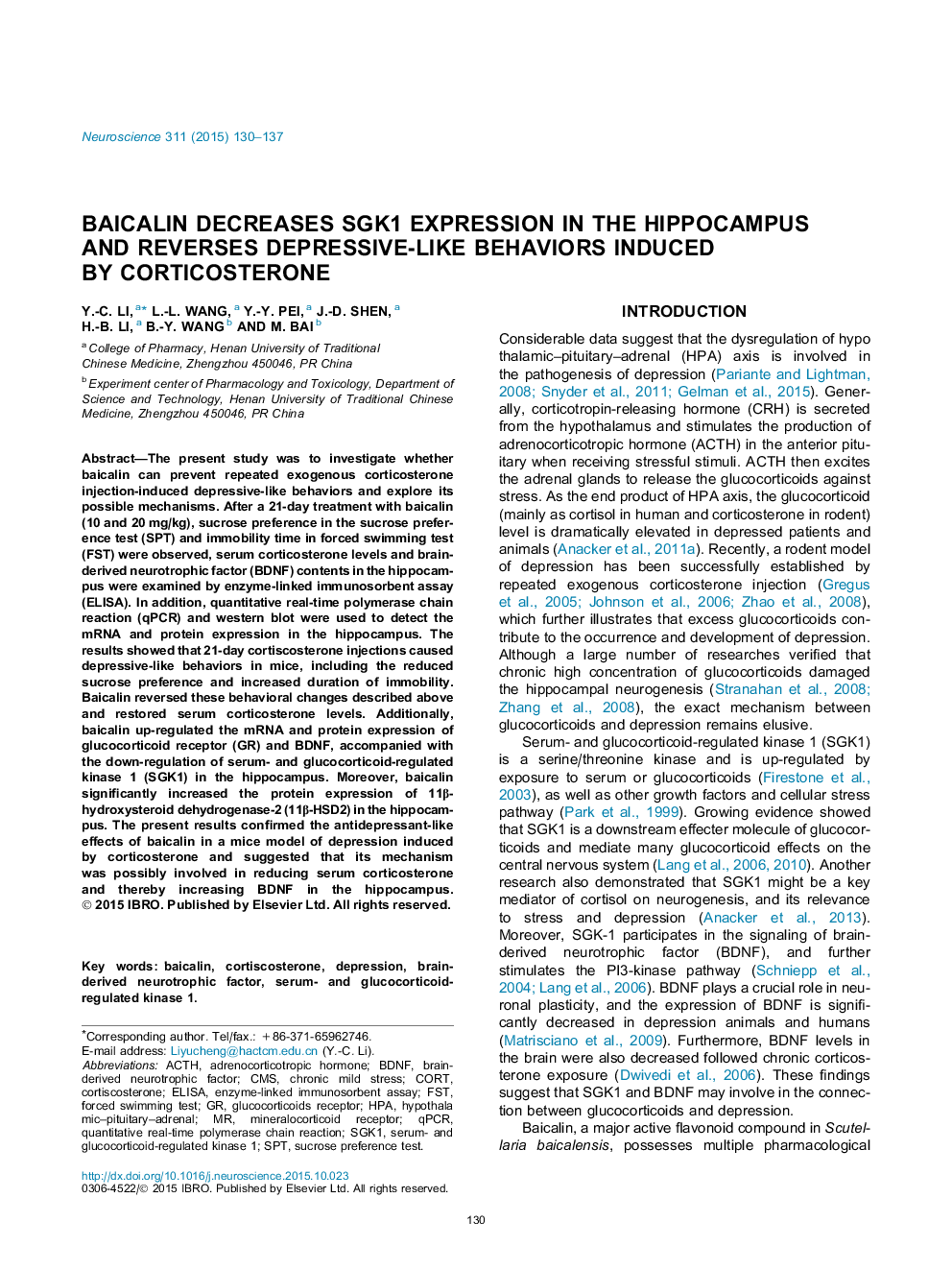| Article ID | Journal | Published Year | Pages | File Type |
|---|---|---|---|---|
| 6271676 | Neuroscience | 2015 | 8 Pages |
â¢Baicalin prevents depressive-like behaviors induced by CORT.â¢Baicalin reverses the increased mRNA and protein expression of SGK1 in the hippocampus induced by CORT.â¢Baicalin increases the hippocampal protein expression of 11β-HSD2, GRα and BDNF in CORT-treated mice.
The present study was to investigate whether baicalin can prevent repeated exogenous corticosterone injection-induced depressive-like behaviors and explore its possible mechanisms. After a 21-day treatment with baicalin (10 and 20 mg/kg), sucrose preference in the sucrose preference test (SPT) and immobility time in forced swimming test (FST) were observed, serum corticosterone levels and brain-derived neurotrophic factor (BDNF) contents in the hippocampus were examined by enzyme-linked immunosorbent assay (ELISA). In addition, quantitative real-time polymerase chain reaction (qPCR) and western blot were used to detect the mRNA and protein expression in the hippocampus. The results showed that 21-day cortiscosterone injections caused depressive-like behaviors in mice, including the reduced sucrose preference and increased duration of immobility. Baicalin reversed these behavioral changes described above and restored serum corticosterone levels. Additionally, baicalin up-regulated the mRNA and protein expression of glucocorticoid receptor (GR) and BDNF, accompanied with the down-regulation of serum- and glucocorticoid-regulated kinase 1 (SGK1) in the hippocampus. Moreover, baicalin significantly increased the protein expression of 11β-hydroxysteroid dehydrogenase-2 (11β-HSD2) in the hippocampus. The present results confirmed the antidepressant-like effects of baicalin in a mice model of depression induced by corticosterone and suggested that its mechanism was possibly involved in reducing serum corticosterone and thereby increasing BDNF in the hippocampus.
